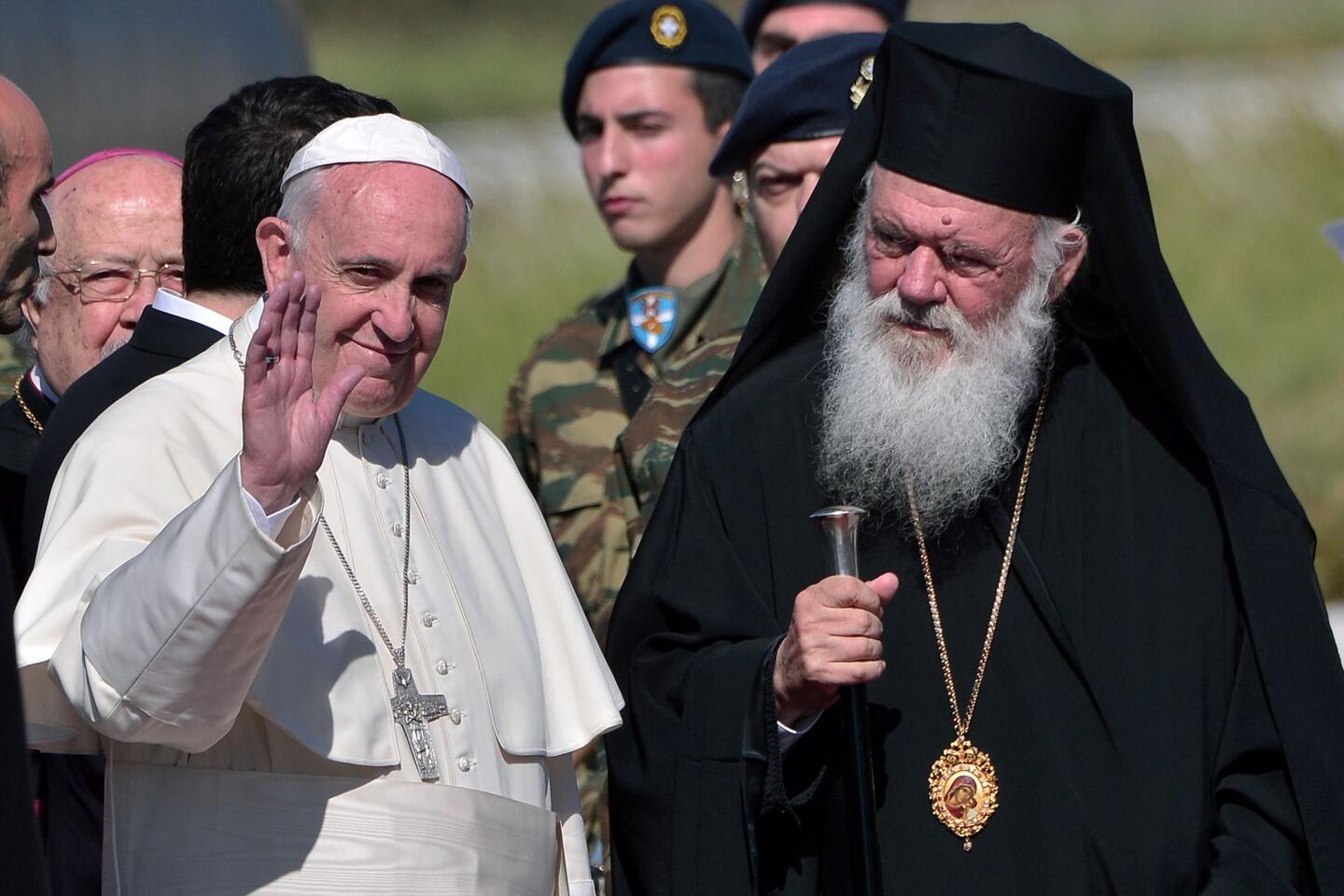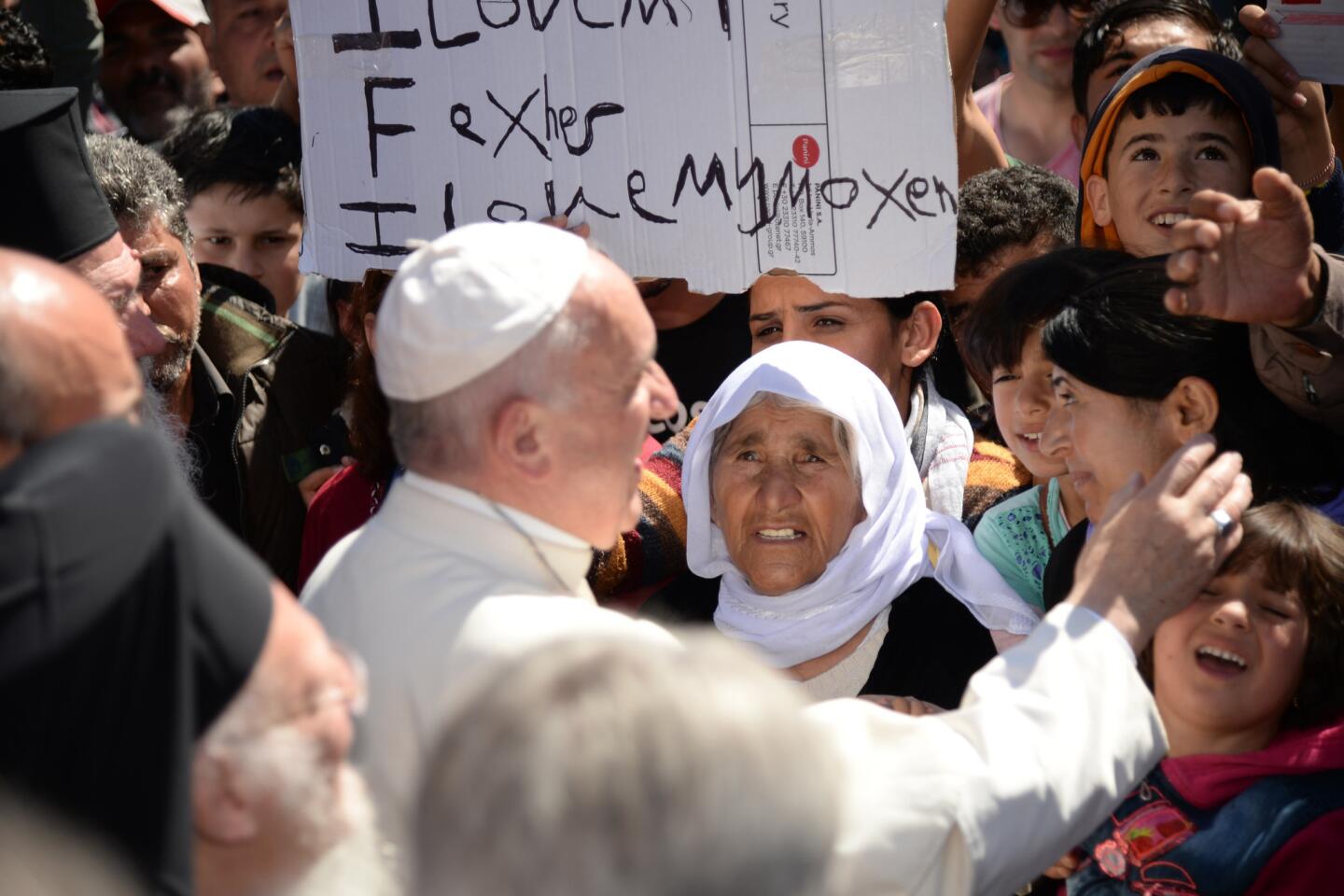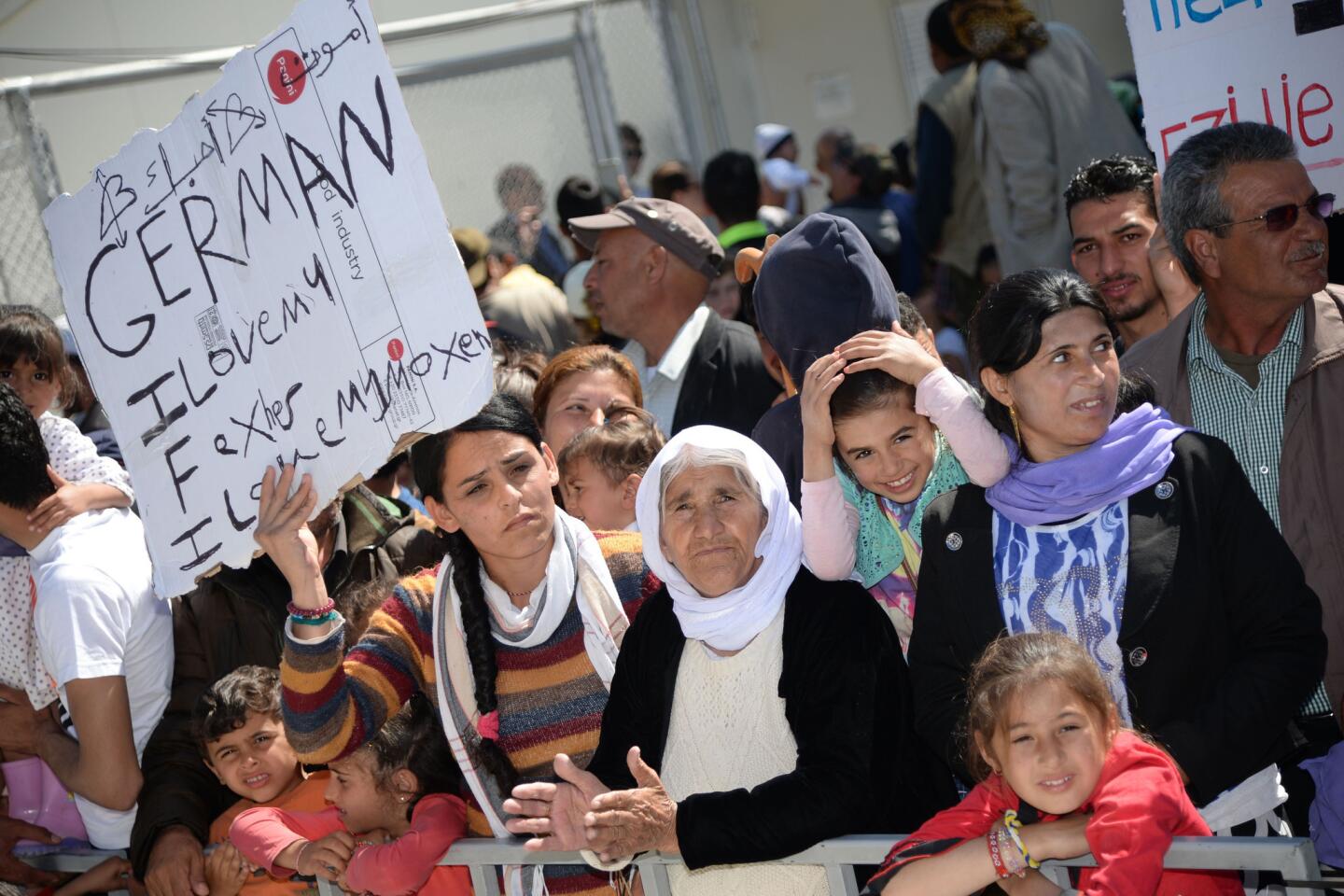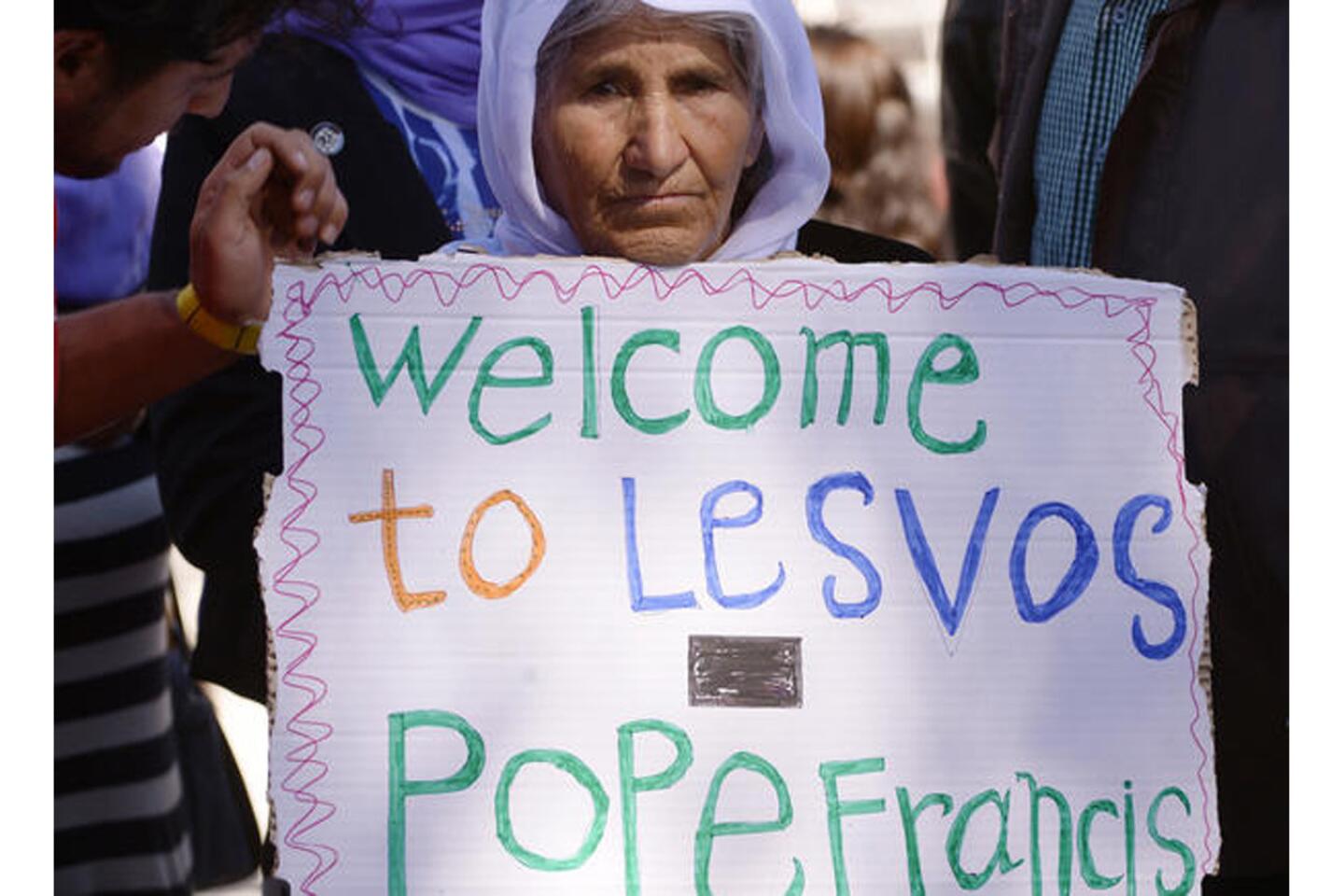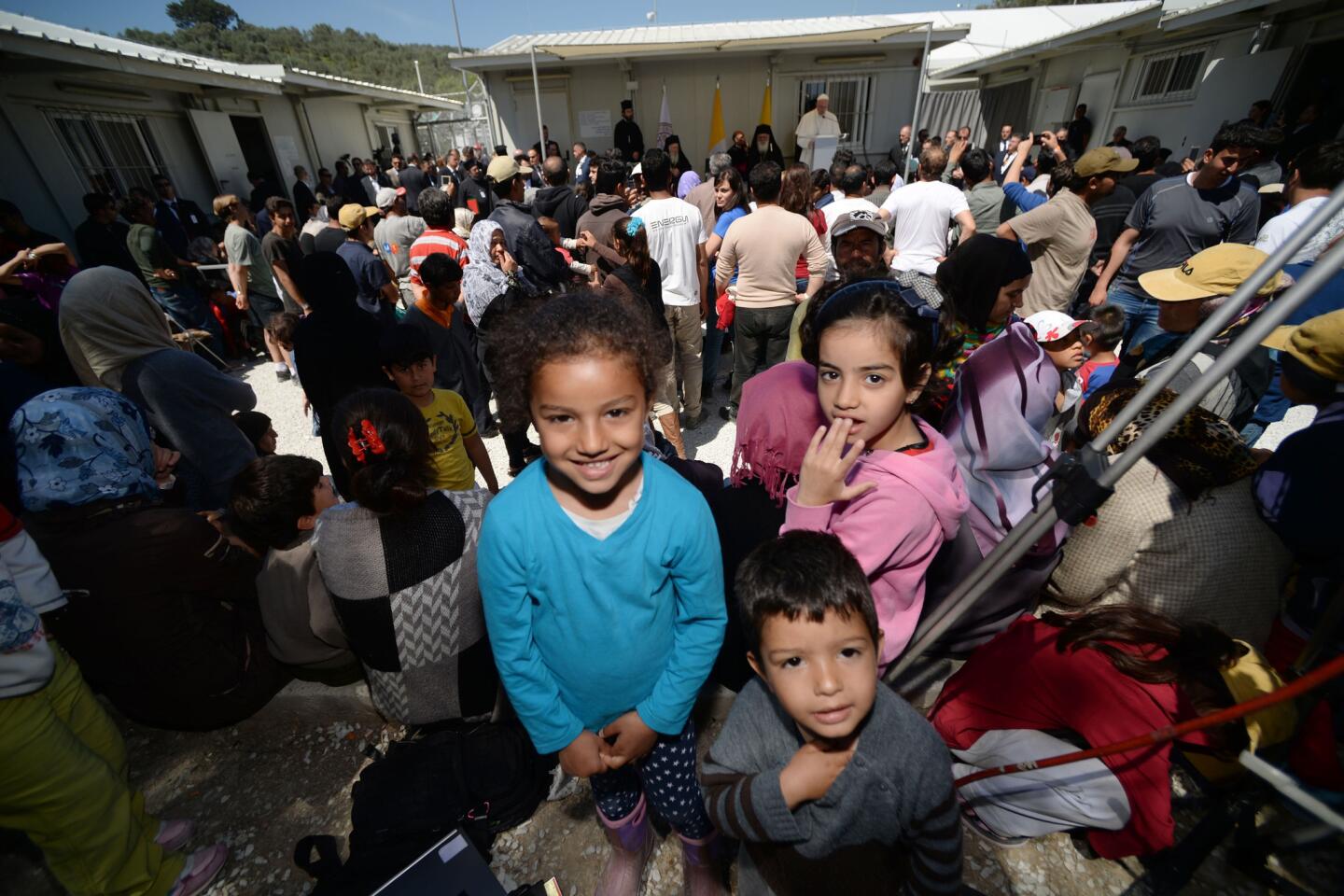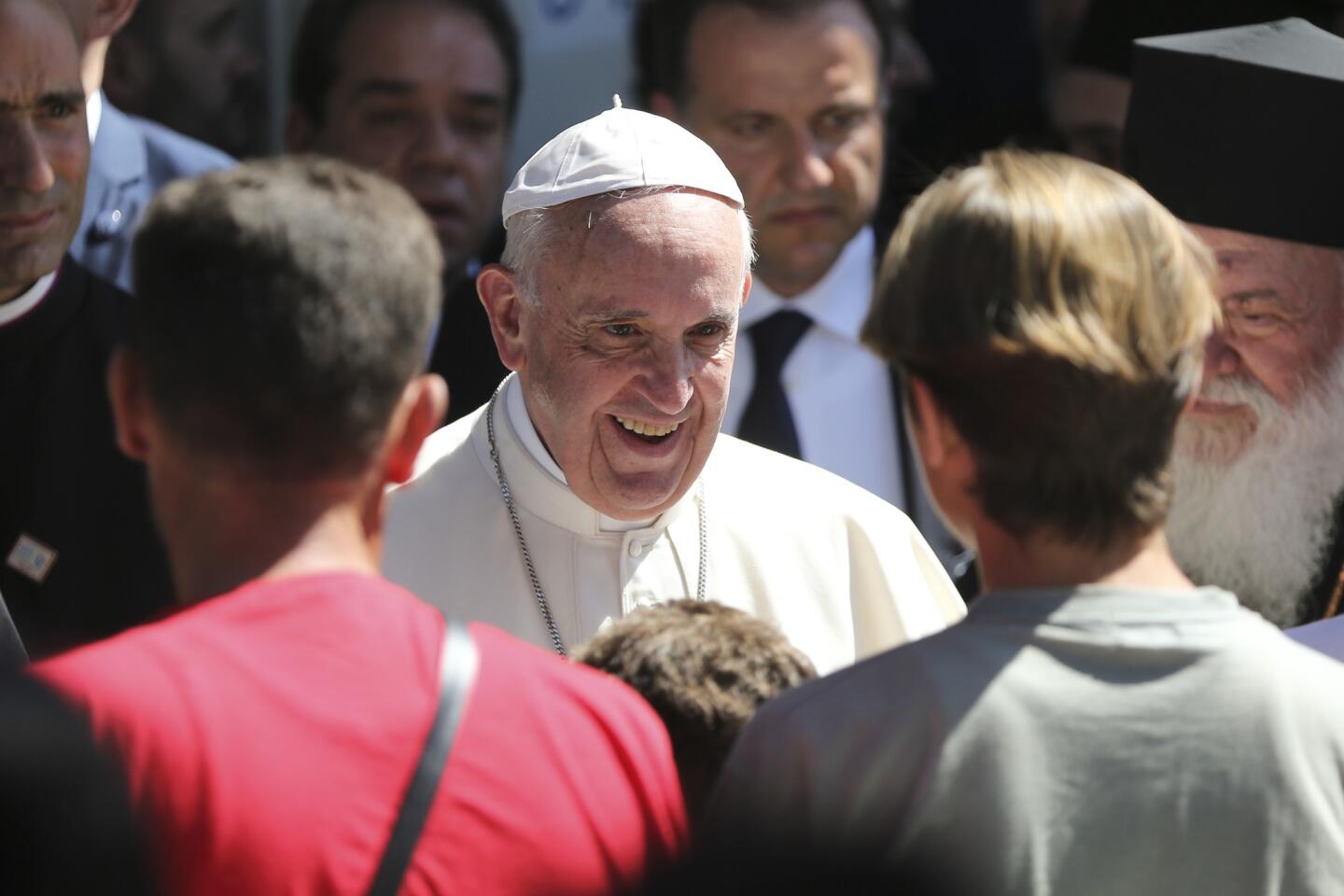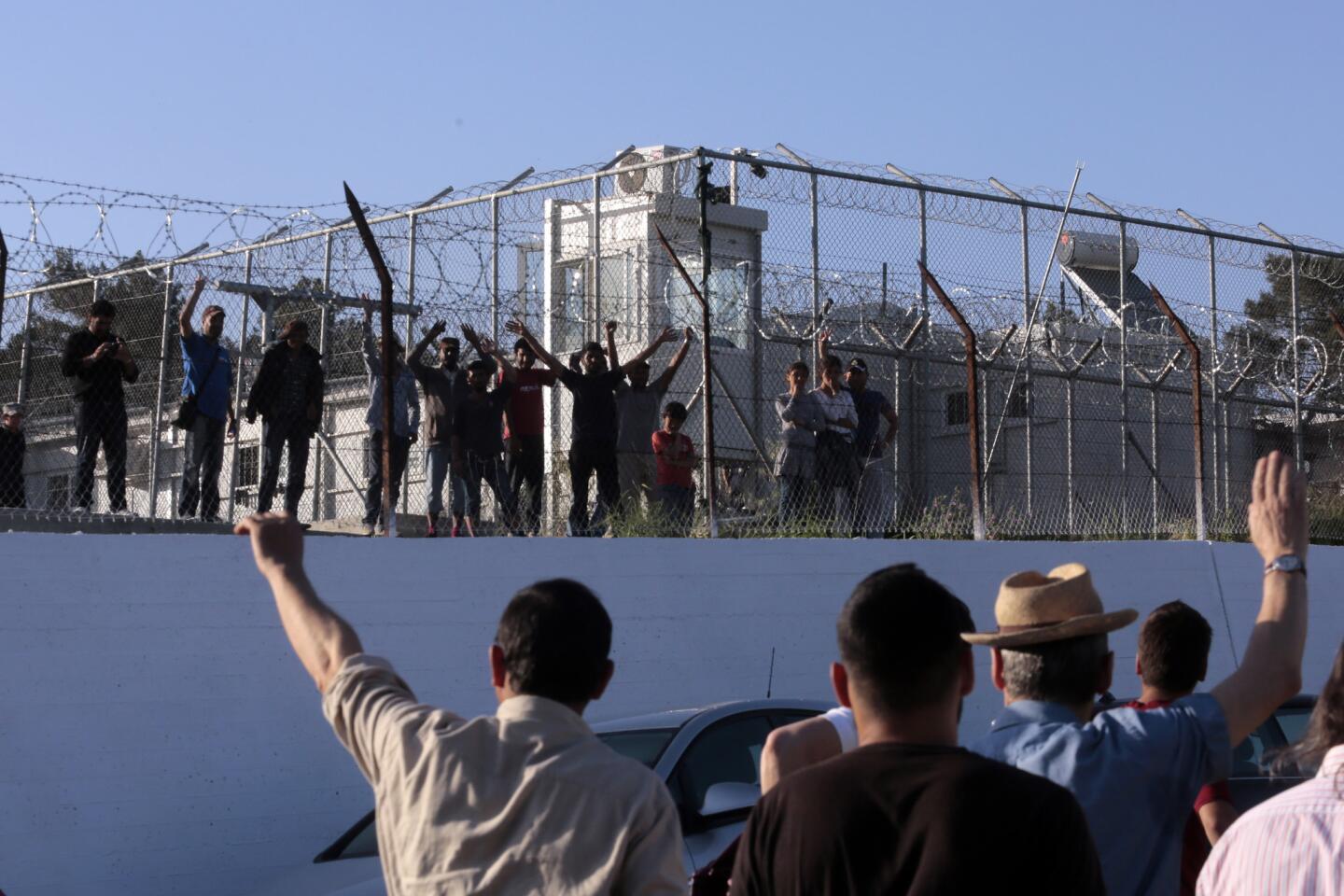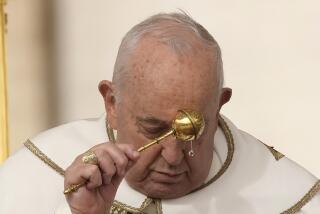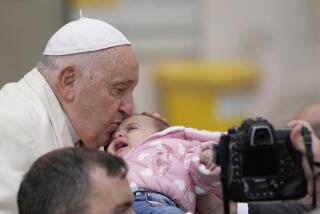Pope visits Lesbos, brings 12 Muslim refugees back to the Vatican
Reporting from Athens — On a visit to the Greek island of Lesbos — the front line of Europe’s biggest refugee crisis since World War II — Pope Francis chided the continent for its treatment of refugees and migrants.
Then, leading by example, he flew back to the Vatican with 12 Muslims from three Syrian families under his protection.
The five-hour visit Saturday was meant to call attention to the crisis. More than 1.1 million people fleeing war and poverty in the Middle East and Africa have arrived in Europe since the beginning of last year. In recent months, several countries have closed their borders. About 50,000 migrants and refugees have been stranded in Greece.
See the most-read stories this hour >>
“I have wanted to be with you today,” the pope told people living at the Moria registration center, which has become a detention camp. “I want to tell you that you are not alone.”
Young men there shook his hand or bent to kiss it. Some took photos with their phones that had helped guide them to Europe. One man sobbed as he asked for a blessing. A young girl fell at the pope’s feet in tears.
Citing the tale of the good Samaritan, the pope called on the world for a compassionate response to the crisis: “May all our brothers and sisters on this continent, like the good Samaritan, come to your aid in the spirit of fraternity, solidarity and respect for human dignity that has distinguished its long history.”
At the port, Francis led a memorial service for the thousands who have died in the Mediterranean Sea trying to cross from Turkey to Greece’s islands.
“Wake us from the slumber of indifference, open our eyes to their suffering, and free us from the insensitivity born of worldly comfort and self-centeredness,” he said in Italian before a minute’s silence.
A crowd waved Greek and Vatican flags as a coast guard boat patrolled in the background.
A total of 4,400 people — including hundreds of children — have died in the Mediterranean since the beginning of last year, according to the United Nations.
Lesbos is now the focal point of a controversial deal reached last month between the European Union and Turkey that is meant to deter any more people from crossing from Turkey to the Greek islands — the porous frontier of the European Union.
Since midnight March 20, any migrant or refugee arriving on a Greek island is detained, quickly evaluated for asylum and, if not approved, returned to Turkey.
Under the deal, EU member states must resettle one Syrian refugee for every Syrian returned to Turkey. Turkey, in turn, will receive billions of dollars to help care for its refugees.
Human rights groups have criticized the detention of women and children and others in need and the lack of healthcare, sanitation facilities and legal aid in the camps, as well as the policy of returning people to Turkey.
The Vatican did not violate the agreement in bringing the 12 Syrians back with the pope. “These are all people who were already in camps in Lesbos before the agreement between the European Union and Turkey,” Vatican spokesman Federico Lombardi said in a statement.
The Vatican will take care of the families — two from Damascus and one from Dair Alzour, in the area occupied by Islamic State militants. Their homes had been destroyed in bombings.
Francis said Europe’s worries about the refugee influx were understandable and legitimate.
But he added: “We must never forget, however, that migrants, rather than simply being a statistic, are first of all persons who have faces, names and individual stories. Europe is the homeland of human rights, and whoever sets foot on European soil ought to sense this, and thus become more aware of the duty to respect and defend those rights.”
In a short meeting with the pope, Greece’s prime minister, Alexis Tsipras, said he was proud of how Greece had dealt with the influx of more than 1 million refugees over the last year even as others, “indeed, in the name of Christian Europe,” raised walls against them.
Ieronymos II, the archbishop who heads the Orthodox Church of Greece and accompanied Francis in Lesbos, told reporters that Europe has displayed a “bankruptcy of humanity.”
“I take pride in the Greeks, who even though going through their own struggles, are helping the refugees make their own calvary a little less ponderous, their uphill road a little less rough,” he said.
Also joining the pope was the ecumenical patriarch of the Orthodox Church, Bartholomew I, an ethnic Greek with citizenship in Turkey, where he is based.
The visit was only the second by a pope to Greek territory since the Great Schism of 1054, when what is now the Orthodox Church broke away from the Catholic Church.
Petrakis is a special correspondent.
ALSO
The breakthrough that’s leading to a new golden age of space travel
Coachella promoters look to book Dylan, Stones, McCartney and Young for mega-concert
California minimum wage hike hits L.A. apparel industry: ‘The exodus has begun’
More to Read
Sign up for Essential California
The most important California stories and recommendations in your inbox every morning.
You may occasionally receive promotional content from the Los Angeles Times.
